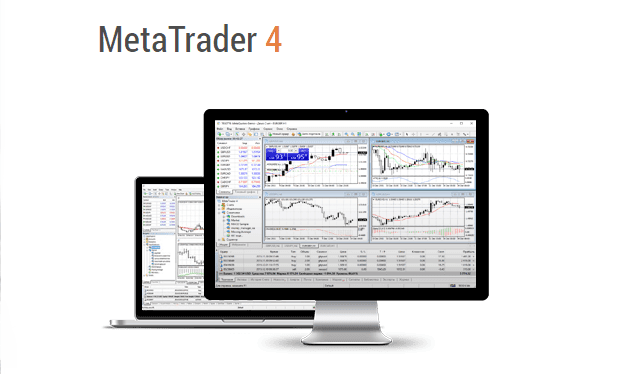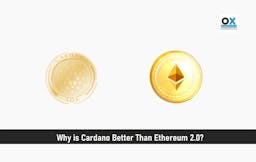
What You Should Know About Forex Brokers
With over $6.6 trillion per day in Forex trading, deciding to partake in the action would not be a bad idea.
Before you jump on this one, it’s important to know what you would need in terms of service from a forex broker.
The daily market cap is split amongst Spot, Outright forwards, Foreign exchange swaps, Currencies, and Options.
To get a piece of the market, one needs a broker’s portal or platform to make this possible since Forex trading requires no physical location.

With dozens of Forex brokers out there and new ones springing up, product offerings are usually very similar but with different nomenclatures.
For example, the uniqueness of trading software, leverage, commission and spreads, deposits, withdrawal limits, and customer service are key factors to be considered.
It is important to sift the complex ones from the efficient ones to avoid headaches and disappointment down the road.
We will be considering five main areas in selecting a reputable forex broker.
Let’s examine the first one on our list:
Statutory Regulations Required for All Forex Brokers
There are known standards and regulations forex brokers must follow. It’s even safer to sign up with brokers who have multiple regulators (Home country and International).
When brokers are regulated, it promotes the sanctity and integrity of the forex market and the entire financial ecosystem. Traders and investors can confidently put in money and receive returns as and when due.
There are renowned forex regulators you should look out for when signing up with a broker. It’s easy to find, you can check the footer section of their website or the about page or other information pages depending on the website layout.
These are a few notable and best forex regulators:
- ASIC – Australian Securities and Investments Commission.
- BaFIN – The Bundesanstalt für Finanzdienstleistungsaufsicht (Germany)
- CFTC – Commodities and Futures Trading Commission (United States)
- CySec – Cyprus Securities and Exchange Commission
- CySec – Cyprus Securities and Exchange Commission
- FCA – Financial Conduct Authority (United Kingdom)
- FFMS – Federal Financial Markets Service
- FINMA – Swiss Financial Market Supervisory Authority
- FMA – Financial Market Authority (Austria)
- FSA – Financial Services Agency
- FSB – Financial Services Board (South Africa)
- BVI – Financial Services Commission
- FSC – Financial Services Commission – Mauritius
- IFSC – International Financial Services Commission
- FSP NZ – New Zealand Financial Service Provider
- ISA – Israel Securities Authority
In the U.S, the rules are stricter.
A forex broker must be duly registered as a company and bound by the laws of the state. A reputable forex broker must also be a member of the Commodity Futures Trading Commission (CFTC) as a Retail Forex Exchange dealer.
Then, the FX broker must be registered with the National Futures Association (NFA) which is a regulatory body for the industry. The CFTC and NFA develop policies, rules, and programs that regulate all activities of FX brokers.
SEE ALSO: Best ECN Forex Brokers
Order Execution Test
A Forex broker provides the platform, portal, or software where all trading takes place. MetaTrader 4 or 5 is usually preferred and offered by most brokers all over the world.
It’s critical that you choose an ECN forex broker for the speedy execution of your orders. You wouldn’t want a situation where there are lags and slippages on executed orders that would end up returning losses to you.
This point is critical to the success of your trades, either as a day trader or swing trader.
As a rule of thumb, good software should have obvious “Buy” and “Sell” buttons usually in green and red respectively. The user interface should be clean and easy to use.

The charts need to be easy to understand with line graphs, bars, or candlesticks as clickable options. Some trading platforms have panic buttons to close all open trades.
It is important you check all these before signing up with a broker. Technical and fundamental analysis tools are basics on the platform and should be made easily accessible to the trader.
A poorly designed interface and software could lead to costly mistakes and possible loss of money. Check for red flags before choosing a forex broker.
SEE ALSO: What is Technical Analysis and Why is it Critical to Forex Trading?
Forex Account Plans
Nearly all Forex brokers have different account packages that caters to a variety of clients depending on individual needs.
If one is selecting the “Basic” or “Starter” plan, it’s important to compare offerings across many other FX brokers starter packages.
Forex accounts can now be opened with as little as $50. This makes Forex trading very attractive to new traders and investors. With this small sum, you have a high buying power than your initial deposit, this is called leverage.
Brokers offer different account plans with varying initial deposits and trading features.
Tradable Assets
Major and Exotic Currency Pairs
There are four main currency pairs gaining the most attention and liquidity in the foreign exchange market, they are the EUR/USD (Euro/U.S. Dollar), USD/JPY(U.S. Dollar/Japanese Yen), GBP/USD (British Pound/U.S. Dollar) and USD/CHF(U.S. Dollar/Swiss Franc).
Most brokers offer more currency pairs than these, it’s important to go for the one that offer currency pairs you’re most interested in.
For exotic currency pairs, below is a list of exotic currency pairs: USD/TRY (US Dollar/Turkish Lira), (US Dollar/Hong Kong Dollar), USD/NOK (US Dollar/Norwegian Krone), USD/DKK (US Dollar/Danish Krone) USD/ZAR (US Dollar/South African Rand) USD/HKD USD/SEK (US Dollar/Swedish Krona).
See our list of recommended brokers with major and exotic currency pairs here.
SEE ALSO: 7 Best Currency Pairs to Trade for Beginners
Cryptocurrency Assets
With the volatility of Bitcoin and other altcoins, it’s advised to know the broker’s trading terms and conditions with respect to cryptocurrencies. Understand your obligations, rights, and protection before holding these digital assets.
Inquire how user information and data are stored because you would want to download and keep a safe digital wallet. Crypto-trading should be accessible 24/7 with substantial Crypro pairs and individual assets available to trade.
Check for the size of leverage the broker is offering, more leverage means more potentials for profit-making. A broker offering leverage of 20:1 for cryptocurrency trading is fair enough and a good deal in our opinion. Also, note that excessive use of leverage comes with its own risks.
Cryptocurrencies have come to stay. It has become a new and advanced currency in the trading business. Bitcoin, leading the pack dominates the Crypto market as others trail along. Ethereum, Litecoin, Bitcoin Cash, Binance Coin, Tether, EOS, and more should be available on the platform as well.
Avatrade is a very reputable and reliable Cryptocurrency broker. You can practically start off trading with 100 dollars. The platform is well detailed, responsive, with an easy to use interface. Lets we forget, their customer service is top-notch.
ITrustCapital is also perfect for investors that wish to keep Cryptocurrencies for retirement in their IRA accounts.
Stocks, Commodities, Options, and Precious Metals
Most brokers provide platforms for trading stocks, commodities, and other assets. It’s usually their addon service, incorporated into currency and cryptocurrency trading. However, many of them are not given totally to stocks and commodities. Only a few focus on giving clients excellent service in that regard.
So, if you wish to trade stocks, commodities, options, and precious metals exclusively, it’s best to signup with brokers than offer this service majorly.
FirstTrade, FXTM and Iq Otion are very good and reliable platforms for stocks, commodities, options and precious metals trading.
Quality Customer Service
How frustrating would it be when you get no response to your emails from your broker’s customer service, or they possibly treated your request shabbily when you raised a ticket with an issue that needs urgent resolution.
Poor or no response from customer service would really annoy any user and possibly lead to bad reviews and loss of money down the road.
Before you sign up with a broker, look for its review page on their website, app, or social media pages.
Filter out the 5-star reviews and narrow your research to the critical ones (1-2 star reviews), see what users are saying.
Take out time to test the chat agent’s response on live chats, you can send emails to ask about a product, plan, software e.tc.
Between 1 min and 3 mins, the response is okay for live chats and 15 mins to 1 hour is okay for a response to emails depending on the nature of the query. Ensure you test customer service response before signing up.
Choosing a reputable forex broker requires guidance. Understudying the right metrics to look out for will save you tons of headaches if you know exactly what you want.
SEE ALSO: Master Price Action in Forex with these Simple Steps
Final Thoughts
Consider these metrics when choosing a broker, these key factors will help simplify the task and narrow down your choice.
- Minimum Deposit
- Regulation with Top Tier Countries
- Availability in the Home Country
- Trading platforms (Metatrader 4 & 5, Webtrader)
- Copy & Social Trading
- Leverage and Spread on Individual Accounts.
- Overnight Negative Balance Protection.
- Trading Education and Technical Tools for Analysis.
- Easy Payment and Withdrawal Procedures.
- Reviews from Users.
Making a choice could be tedious, but a little effort will save you stress and financial loss down the road.
Highlighting your needs will expose the features you need and those you can do without. We have simplified this task by spending tons of hours reviewing the best brokers in the industry.
You can explore our broker reviews for more information.
Read More




